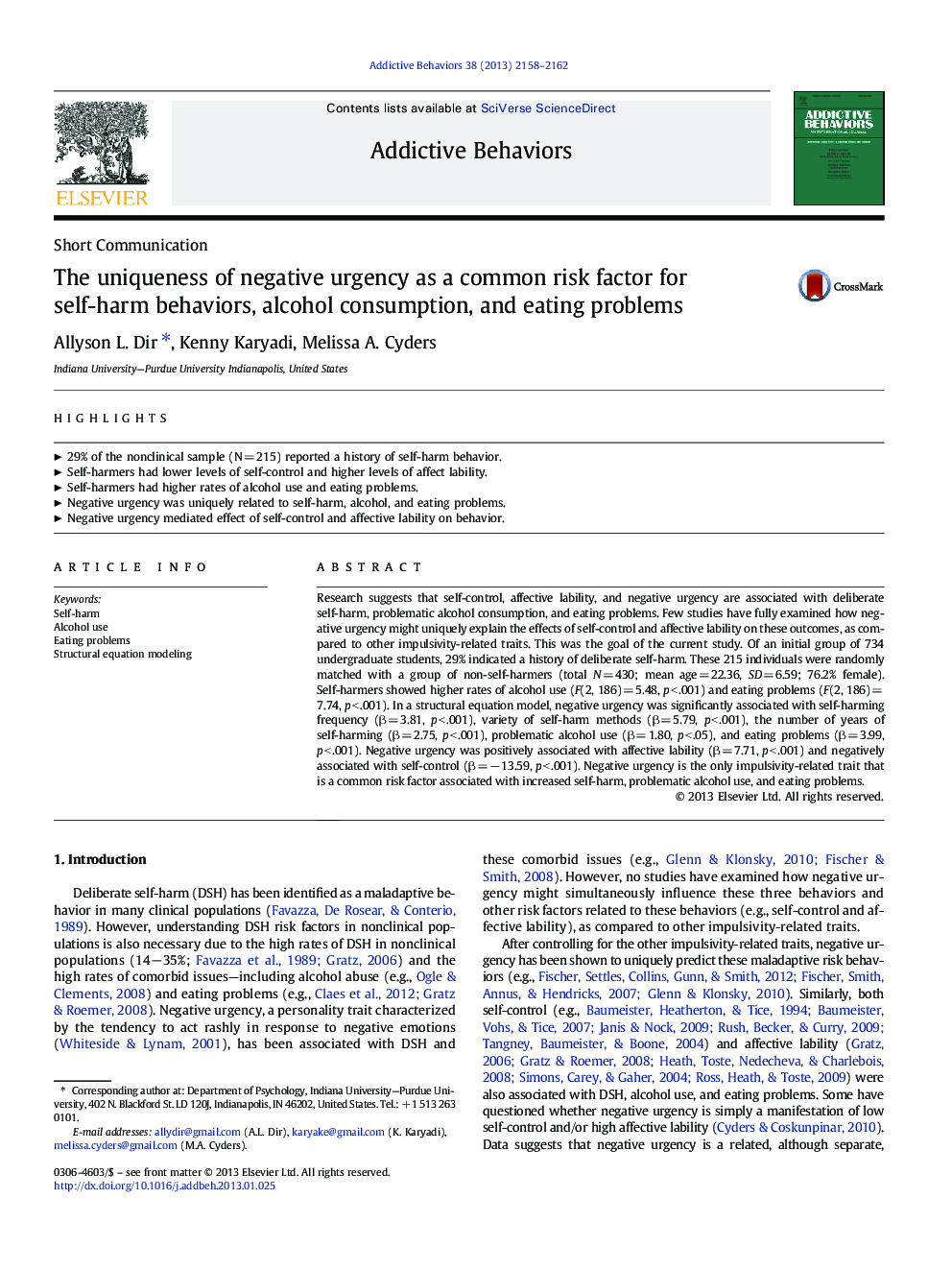| Article ID | Journal | Published Year | Pages | File Type |
|---|---|---|---|---|
| 899108 | Addictive Behaviors | 2013 | 5 Pages |
Research suggests that self-control, affective lability, and negative urgency are associated with deliberate self-harm, problematic alcohol consumption, and eating problems. Few studies have fully examined how negative urgency might uniquely explain the effects of self-control and affective lability on these outcomes, as compared to other impulsivity-related traits. This was the goal of the current study. Of an initial group of 734 undergraduate students, 29% indicated a history of deliberate self-harm. These 215 individuals were randomly matched with a group of non-self-harmers (total N = 430; mean age = 22.36, SD = 6.59; 76.2% female). Self-harmers showed higher rates of alcohol use (F(2, 186) = 5.48, p < .001) and eating problems (F(2, 186) = 7.74, p < .001). In a structural equation model, negative urgency was significantly associated with self-harming frequency (β = 3.81, p < .001), variety of self-harm methods (β = 5.79, p < .001), the number of years of self-harming (β = 2.75, p < .001), problematic alcohol use (β = 1.80, p < .05), and eating problems (β = 3.99, p < .001). Negative urgency was positively associated with affective lability (β = 7.71, p < .001) and negatively associated with self-control (β = − 13.59, p < .001). Negative urgency is the only impulsivity-related trait that is a common risk factor associated with increased self-harm, problematic alcohol use, and eating problems.
► 29% of the nonclinical sample (N = 215) reported a history of self-harm behavior. ► Self-harmers had lower levels of self-control and higher levels of affect lability. ► Self-harmers had higher rates of alcohol use and eating problems. ► Negative urgency was uniquely related to self-harm, alcohol, and eating problems. ► Negative urgency mediated effect of self-control and affective lability on behavior.
